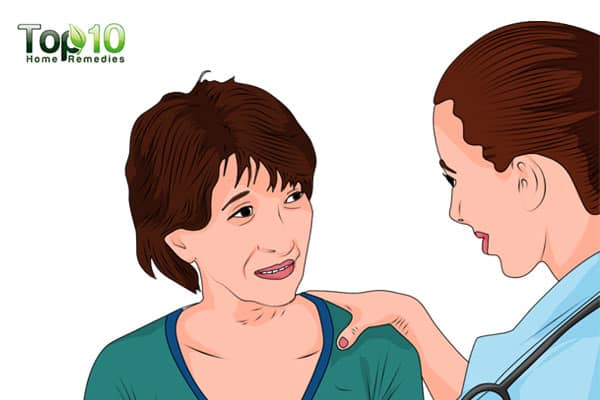Menopause, also called a woman’s “change of life”, starts when her period stops. One reaches menopause only when you’ve had no menstrual periods for one year.
Many women spend around 50 percent of their adult life as a postmenopausal females.
Menopause happens because your ovaries stop producing the hormones estrogen and progesterone. This decreased production of estrogen and progesterone can cause several changes in your body.
Common symptoms include hot flashes, mood swings, sleep difficulty, weight gain, changes in hair growth and vaginal dryness.
Menopause is a life-changing process, and there are many things that you should be aware of. Knowledge will help you overcome the challenges of menopause and lead a healthy and happy life.
Here are some key things about menopause that every woman should know.
1. Age that Menopause Occurs
The average age that American women reach menopause is 52, but it can occur anytime between the ages of 45 and 58, according to the U.S. Department of Health and Human Services (1).
Most women have their last period sometime between the ages of 45 and 55.
While the age of menopause is thought to be genetically determined, factors like smoking or chemotherapy can accelerate a decline in functioning of the ovaries, resulting in earlier menopause.
A 2011 study published in the Obstetrics & Gynecology Clinics of North America reports that a number of factors seem to be important determinants of the age at which natural menopause occurs, including (2):
- Demographics, such as education, employment and race/ethnicity.
- Menstrual and reproductive factors, such as parity and oral contraceptive use.
- Familial and genetic factors.
- Lifestyle factors, such as smoking, weight, physical activity and diet.
2. Early Menopause May Happen
Even though the average age of menopause in the U.S. is 52, some women may reach it early.
Experts consider menopause before the age of 40 as early menopause. Contributing factors in early menopause include both genetics as well as medical conditions like an abnormal thyroid or a rheumatic disease, such as lupus.
Chemotherapy and radiation can also damage the ovaries and lead to early menopause.
Women whose ovaries have been removed as part of a medical treatment also undergo early menopause.
Smoking is another reason behind early menopause.
A 2015 study published in the BMJ reports that women who are heavy or habitual smokers are more likely to experience menopause earlier (3).
3. Perimenopause is Not Menopause
Do not confuse perimenopause with menopause. They are two different things.
While perimenopause refers to the period of time right before menopause begins, you enter the menopause stage officially once you have completely stopped having a menstrual cycle for 12 consecutive months.
During perimenopause, your body is beginning the transition into menopause. During this stage, the body makes less and less of the hormones that control your period – estrogen and progesterone. Due to these changes in hormone production, your menstrual cycle may become irregular, but it won’t cease.
At the same time, you may be having other symptoms like hot flashes, breast tenderness, weight gain, increase in heart rate, night sweats, insomnia, fatigue, anxiety, mood swings, irritability and depression.
This content was originally published here.







